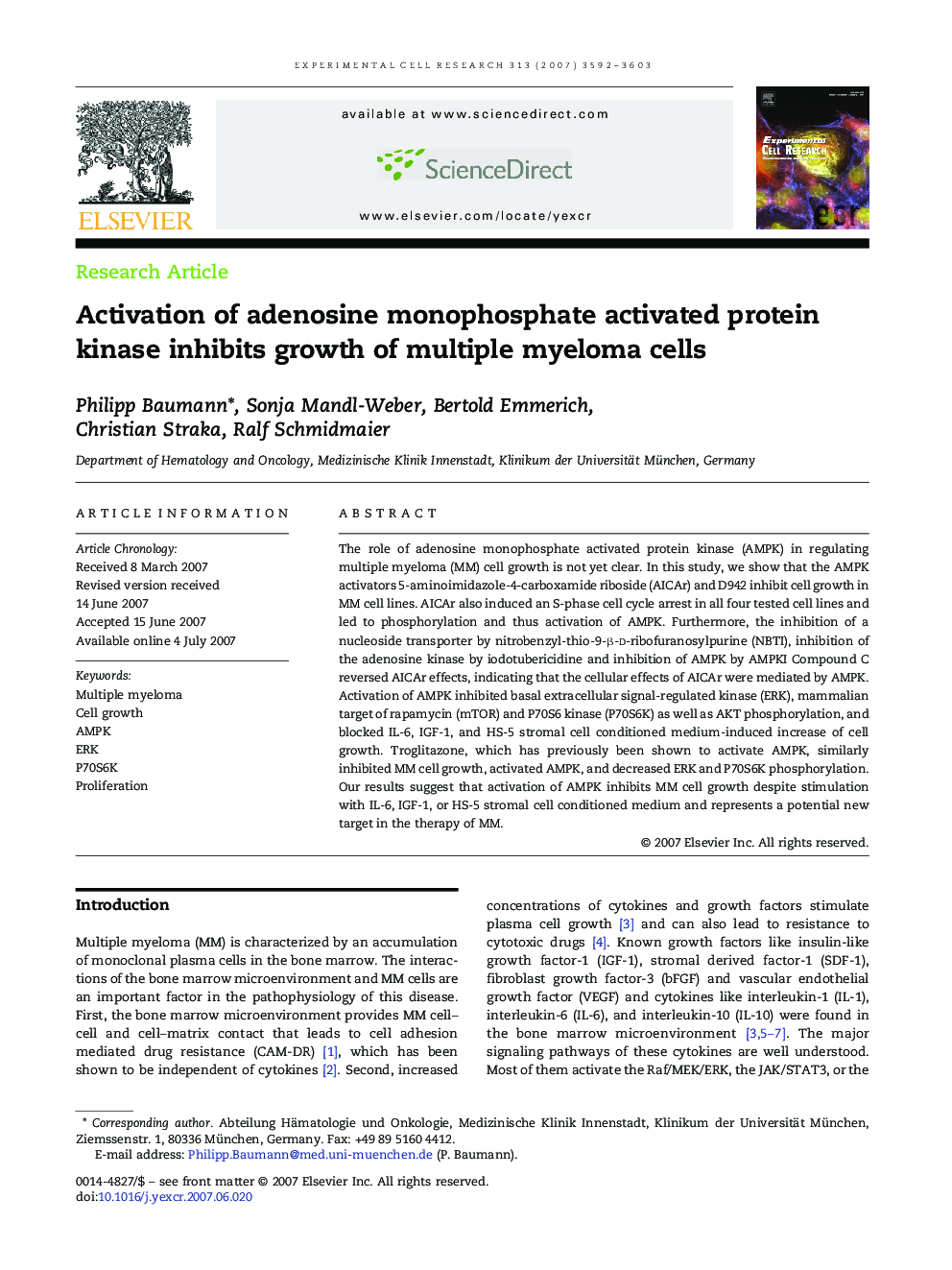| Article ID | Journal | Published Year | Pages | File Type |
|---|---|---|---|---|
| 2132551 | Experimental Cell Research | 2007 | 12 Pages |
The role of adenosine monophosphate activated protein kinase (AMPK) in regulating multiple myeloma (MM) cell growth is not yet clear. In this study, we show that the AMPK activators 5-aminoimidazole-4-carboxamide riboside (AICAr) and D942 inhibit cell growth in MM cell lines. AICAr also induced an S-phase cell cycle arrest in all four tested cell lines and led to phosphorylation and thus activation of AMPK. Furthermore, the inhibition of a nucleoside transporter by nitrobenzyl-thio-9-β-d-ribofuranosylpurine (NBTI), inhibition of the adenosine kinase by iodotubericidine and inhibition of AMPK by AMPKI Compound C reversed AICAr effects, indicating that the cellular effects of AICAr were mediated by AMPK. Activation of AMPK inhibited basal extracellular signal-regulated kinase (ERK), mammalian target of rapamycin (mTOR) and P70S6 kinase (P70S6K) as well as AKT phosphorylation, and blocked IL-6, IGF-1, and HS-5 stromal cell conditioned medium-induced increase of cell growth. Troglitazone, which has previously been shown to activate AMPK, similarly inhibited MM cell growth, activated AMPK, and decreased ERK and P70S6K phosphorylation. Our results suggest that activation of AMPK inhibits MM cell growth despite stimulation with IL-6, IGF-1, or HS-5 stromal cell conditioned medium and represents a potential new target in the therapy of MM.
